1. They’re Embracing RV Life for Remote Work
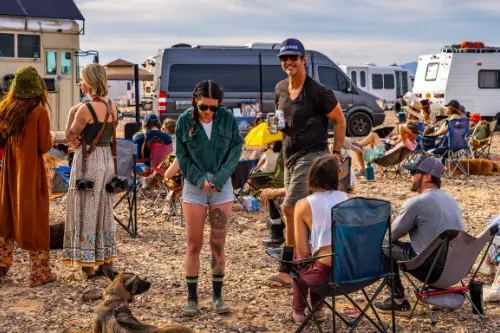
Millennials are leading the charge in redefining what “work from home” looks like—except their home often has wheels. With reliable mobile internet options and the rise of remote work, young professionals are increasingly turning to RVs as mobile offices. Instead of clocking in at a cubicle, they’re attending Zoom meetings from national parks, scenic overlooks, and cozy campsites. Remote work has allowed millennials to break free from traditional living arrangements, and RVs give them the flexibility to combine work and travel seamlessly, according to Brooklyn Campervans.
This trend has fueled demand for RVs equipped with high-speed internet capabilities, ergonomic workspaces, and extra power sources for electronics. Manufacturers are noticing, creating models with designated desks, soundproofing, and even built-in standing desks. This isn’t just a lifestyle shift—it’s also transforming how RVs are designed and marketed, catering to a younger, more tech-savvy demographic.
2. They’re Revolutionizing RV Interior Design
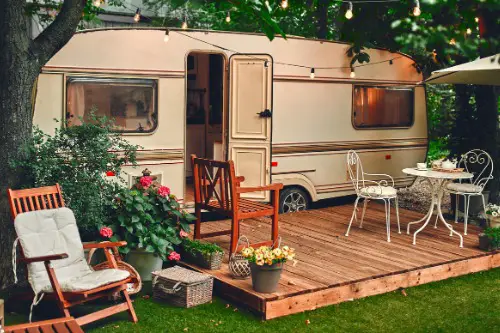
Forget the drab, dated interiors of traditional RVs—millennials are all about customization and modern aesthetics. From bright, airy color palettes to multi-functional furniture, this generation is reimagining what an RV can look like. Platforms like Instagram and Pinterest are full of renovated RVs showcasing sleek Scandinavian designs, boho-chic vibes, and clever storage solutions.
This trend has created a booming DIY RV renovation community, with young travelers documenting their projects and inspiring others, as you can see on HGTV. The demand for modern, customizable RVs has also influenced manufacturers, who are increasingly offering more stylish and functional options straight off the lot. Millennials are proving that tiny living can be just as beautiful as it is practical.
3. They’re Prioritizing Sustainability in Their RV Choices
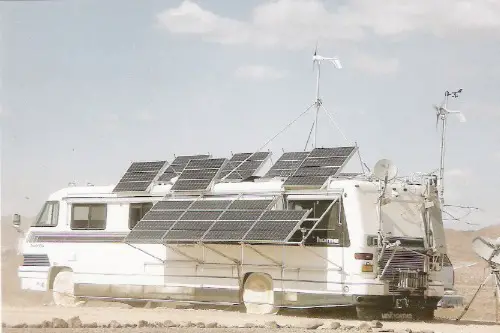
Millennials are eco-conscious, and that mindset extends to how they approach RV life, according to Green Living Magazine. Many are choosing smaller, more fuel-efficient RVs, or even retrofitting older models to minimize waste. They’re also gravitating toward solar-powered rigs and electric RVs to reduce their carbon footprint while on the road. This generation is proving that the desire to explore doesn’t have to come at the expense of the environment.
Their push for sustainability has sparked innovations within the RV industry, with manufacturers introducing greener models that cater to these values. Companies are developing hybrid RVs, installing energy-efficient appliances, and using sustainable building materials. For millennials, RV life isn’t just about adventure—it’s also about living responsibly and leaving a lighter footprint.
4. They’re Turning RV Life Into a Social Media Movement

For millennials, RV life isn’t just a lifestyle—it’s a story to share. Social media has become a key part of the RV experience, with travelers documenting their adventures on platforms like Instagram, TikTok, and YouTube. There are thousands of RV influencers, according to Influencers Club. They’re creating content that showcases everything from epic sunsets to the challenges of life on the road, making RV living feel relatable and aspirational.
This social media boom has not only inspired others to try RV life but also fueled new business opportunities. Some millennials fund their travels through brand sponsorships, affiliate marketing, or content creation, blending work and play. As they share their journeys, they’re redefining what it means to live and work in an RV while inspiring an entirely new audience to hit the road.
5. They’re Building Tight-Knit RV Communities
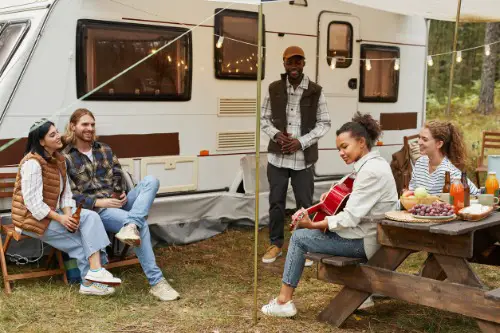
Millennials are rewriting the rules on what community means for RV enthusiasts. Apps like Campendium and Meetup help young RVers connect with one another at campgrounds or on the road. These communities focus on shared experiences, like group hikes, workshops, and even co-working sessions, creating a sense of belonging despite their mobile lifestyle, according to Outdoorsy.
This focus on connection has given rise to events like RV meetups and caravans, where groups travel together and support each other. It’s a stark contrast to the more solitary RV culture of the past, showing how millennials prioritize relationships and shared experiences even in unconventional living arrangements.
6. They’re Driving the Growth of the Van Life Movement

The “van life” subculture has exploded in recent years, and millennials are at the heart of it. Many are opting for converted vans over traditional RVs, valuing their compact size, easier drivability, and minimalist aesthetic. This movement aligns with millennial values of simplicity, mobility, and a deeper connection to nature.
The van life trend has also sparked a wave of creativity, with custom builders designing vans that maximize every inch of space. Platforms like YouTube and Instagram are filled with van conversion tours, inspiring more people to embrace this alternative lifestyle. As millennials continue to champion van life, they’re reshaping the broader RV industry to focus on smaller, more adaptable living spaces.
7. They’re Making RVing More Tech-Savvy
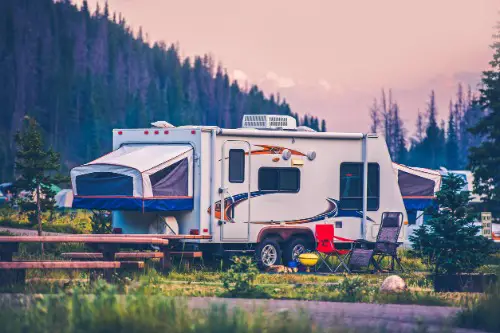
Tech is second nature to millennials, and they’re bringing that expertise to the RV world. From mobile apps that find campsites to gadgets that monitor RV systems remotely, technology is at the heart of their RV experience. Many are even installing smart home systems in their RVs, complete with voice-activated lights and temperature controls.
This demand for tech-savvy RVs is driving innovation, with manufacturers integrating more advanced features into their designs. Solar panels, Bluetooth-enabled appliances, and smart security systems are becoming standard in newer models. Millennials are proving that RV living doesn’t mean sacrificing modern conveniences—in fact, it can be even more connected than traditional living.
8. They’re Opting for Short-Term, Adventure-Focused RV Trips
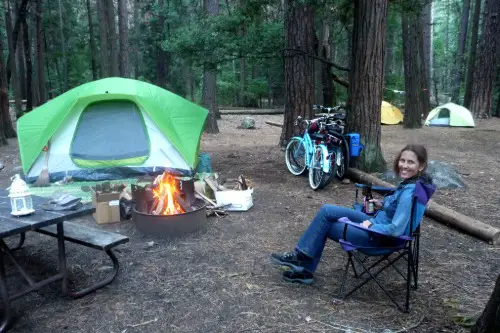
While older generations may have seen RVs as a long-term lifestyle choice, millennials are more likely to use RVs for shorter, adventure-focused trips. Weekend getaways, national park explorations, and festival hopping are now common among younger RV travelers. This shift has opened up RV rentals as a booming industry, allowing people to experience the RV lifestyle without committing to full-time ownership.
This trend has also led to a rise in RV-sharing platforms, much like Airbnb for RVs. Websites and apps now allow users to rent out their RVs, offering more flexible and affordable ways for millennials to enjoy the open road. Whether it’s for a few days or a couple of weeks, millennials are proving that RV life can be a fun, temporary escape rather than a permanent commitment.
9. They’re Choosing RVs for Budget-Friendly Travel
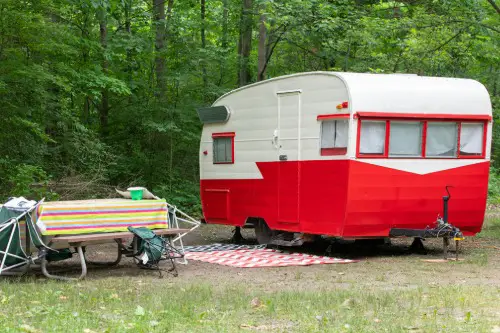
Millennials are known for being budget-conscious, and many see RVing as a cost-effective way to travel. Instead of expensive hotels or flights, RVs provide an all-in-one solution for accommodation, transportation, and sometimes even food. By cooking meals in their RV kitchens and avoiding pricey accommodations, young travelers can stretch their dollars further while exploring new places.
This financial sensibility has encouraged a new wave of RV owners who view their vehicles as both a travel tool and an investment. The affordability of RV travel is also helping millennials rediscover road trips, which might have been overlooked in favor of pricier vacations. As more people realize that RVs offer a way to see the country without breaking the bank, the appeal of RV travel continues to grow.
10. They’re Demanding More Inclusive and Diverse RV Experiences
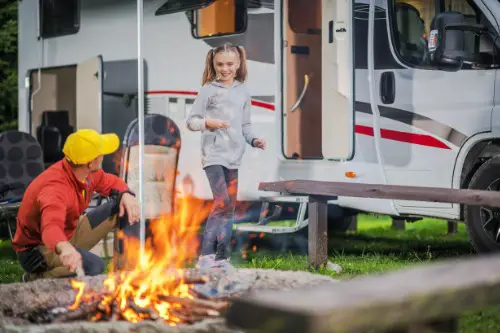
Millennials value inclusivity, and that’s influencing the RV world. This generation is pushing for more diverse and accessible camping experiences, whether that means making campgrounds more inclusive for people of different races, sexual orientations, or abilities, or advocating for accessible RV designs. As more millennials of all backgrounds embrace RVing, there’s a growing demand for spaces and vehicles that cater to a wider range of experiences.
This shift is not just about diversity in RV ownership but also in the way RV parks and campgrounds operate. Many are now prioritizing diversity and inclusion through accessible facilities, diverse programming, and campaigns that represent various communities. Millennials are making it clear that RVing isn’t just for one group—it’s for everyone.
11. They’re Redefining Luxury RVs
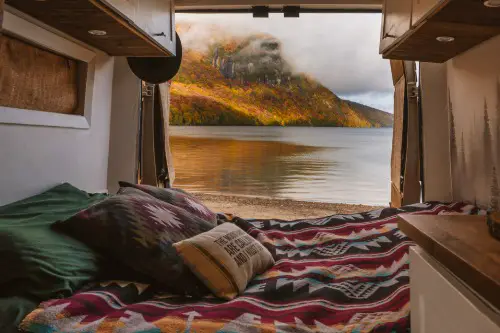
When you think of luxury RVs, you might picture over-the-top amenities and million-dollar vehicles. But millennials are taking luxury RVs to a whole new level by prioritizing custom-built features that enhance comfort and style, while also making them more environmentally friendly and efficient. Millennials are moving away from traditional opulence, opting for sleek, minimalist designs with sustainable touches, like energy-efficient lighting and eco-friendly materials.
This has prompted RV manufacturers to rethink luxury offerings. Instead of just large, over-the-top RVs, many are offering high-end, custom options with a focus on modern, functional design. Luxury RVs for millennials might include smart home features, spa-like bathrooms, and advanced entertainment systems—while still maintaining an emphasis on sustainability. The result is a new vision of luxury that’s both chic and responsible.
12. They’re Leading the Charge in RV Rental and Peer-to-Peer Sharing
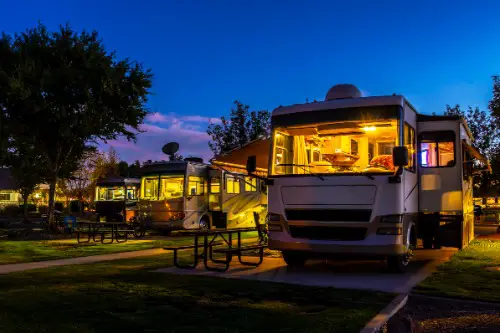
Millennials have fully embraced the “sharing economy,” and it’s making waves in the RV industry. Instead of owning an RV, many millennials are opting for rentals through platforms like Outdoorsy and RVshare. This peer-to-peer rental model makes RVing more accessible by lowering the barrier to entry. Whether it’s a weekend trip or an extended road adventure, renting an RV allows them to experience the lifestyle without the commitment or costs of ownership.
This shift has created an entirely new marketplace for RV rentals, with RV owners renting out their vehicles to those who are interested in trying RV life for the first time. It’s also driven innovations in RV design, as owners are increasingly looking to make their vehicles stand out to renters. Through peer-to-peer sharing, millennials are making RVing more accessible and flexible, opening up the possibility of adventure to a much wider audience.


